Written in December 2013 by Christopher Nam
Edited in March 2015 by Marsha Kononenko and Helena Wang

Spain lift their first FIFA World Cup trophy after their dramatic 1-0 win over the Netherlands. Photo by Getty Images
***
In the 2010 World Cup in South Africa, the Spanish national team was the story of the tournament by winning their first World Cup title. Given their success in the Euro 2008 tournament, as well as the World Cup qualifying rounds, Spain was one of the favorites from the beginning to win it all. This page offers highlights of their World Cup title run, analysis of their success, an insight to the effects of such a monumental victory, and the lessons it provides for the 2014 World Cup in Brazil.
UPDATE: Spain’s Failed World Cup 2014 Run
World Cup Qualifying
Coming off of a dominating championship in Euro 2008 where they defeated Germany 1-0 in the final to go undefeated for the tournament, Spain blazed through their qualifying campaigns [1]. La Roja completed a perfect qualifying run by winning each of their ten games and finishing ahead of second place Bosnia and Herzegovina by a comfortable eleven points. They earned one of nine automatic qualifying bids, marking their thirteenth World Cup appearance. They were part of the daunting and fiercely competitive European zone for qualification as one of fifty-three teams vying for thirteen spots to South Africa. The teams were split between eight groups of six and one group of five. The nine group winners automatically qualified and the eight second placed teams entered a play-off for the last four spots. Spain was drawn with Bosnia and Herzegovina, Turkey, Belgium, Estonia, and Armenia [3]. Forward David Villa led the attack, scoring seven of 28 goals, good to tie for fourth in the tournament.
Spain’s solid offense, which scored the second most goals of the qualifiers, was coupled with a stout defense, only allowing five goals in their ten matches. Captain Iker Casillas – arguably the best goalkeeper in the world who is referred to as San Iker, or “Saint Iker,” by fans- provided the backbone of the defense along with Carlos Puyol who brought much experience to the back line. The midfield was led by the passing prowess of Xavi Hernández and the creative touch of Andrés Iniesta to dictate the fluid style Spain is now best known for. Spain was blessed with one of the deepest squads in Europe allowing them to flourish in the long, ten-match campaign. Vicente del Bosque, the manager of the Spanish team, had a myriad of talented options to choose from at every position, forcing world-class players to watch from the sidelines. Two close one-goal victories over Turkey and Belgium were coupled with comfortable wins over Estonia, Armenia, and Bosnia-Herzegovina. Spain was never really in doubt for their qualification, as they secured their spot with two matches to go in an easy 3-0 home rout of Estonia [2].
Vicente del Bosque took over as the coach of the Spanish national team from Luis Aragonés at the start of Spain’s World Cup qualifying campaign. Del Bosque was a prolific manager, garnering success with Real Madrid winning a UEFA European Super Cup (2002), two UEFA Champions Leagues (2000, 2002), two La Ligas (2001, 2003), a Spanish Super Cup (2001), and the Toyota Intercontinental Cup (2002) [4]. Luis Aragonés had led Spain through their Euro 2008 championship, first emphasizing the short passing game they later became accustomed to. When Del Bosque took over, he embodied the same philosophies as Aragones, keeping similar players and strategies as the previous championship. He relied on the experience of players like Xavi and Iniesta to continue the one-touch passing style that saw Spain control possession and thus control the game. With an already established effective unit, Del Bosque was able to achieve immediate success, losing only once in the road to the World Cup – a semi-final loss to the U.S. at the FIFA Confederations Cup 2009 [2].
By the start of the World Cup, Spain was ranked number two in the world by FIFA and a clear favorite to bring home the title, despite past lack of success on the world’s biggest stage. However, they proved they could overcome their “under-performer tag” by winning Euro 2008, bringing heightened expectations for the World Cup following a perfect qualifying campaign. The quality of players that Spain had led many to believe that this was their best chance yet to bring home their first title [5].
Before the World Cup, Spain was matched up with Switzerland, Honduras, and Chile in a manageable group that they were expected to win. They aimed to continue the momentum they had through qualifying to hopefully bring home their first title. However, they suffered a major upset with a 1-0 defeat to Switzerland. Spain dominated the game with their signature collective movement with short, accurate passes, barely allowing the Swiss to get the ball out of their own half. They were unable to capitalize on their few chances, allowing a goal by Gelson Fernandes to lead the Swiss to a historic victory, their first World Cup opener win since 1954 [8]. Despite this loss, Spain was able to bounce back with a 2-0 victory over Honduras and a 2-1 victory over Chile to finish on top of Group H on goal differential over Group H runner-up Chile.
Spain qualified for the round of 16, facing off with Portugal and their star player, Cristiano Ronaldo. They again pulled off another signature 1-0 win with David Villa’s 63rd minute goal. Spain’s next 1-0 win over Paraguay in the round of 8 gave them their first final four since 1950. In this semifinal, they were pitted against a strong German team, who was also one of the favorites at the beginning of the tournament to raise the trophy. One big question for Spain throughout the tournament had been star forward Fernando Torres. Torres was considered one of the world’s most dangerous forwards after his performance in Euro 2008, scoring the winning goal in the finals against Germany. However, after a knee surgery in April of 2010, Torres had a slow recovery that saw a dip in form from before his injury [9]. In this semifinal, Del Bosque opted for Barcelona winger, Pedro, as the only major change to the lineup that stayed consistent throughout the tournament, and it was Pedro who proved instrumental in their semifinal victory. His positioning and movement created most of Spain’s chances, albeit they were pretty few and far between.
Spain again dominated the possession by controlling the ball with many short passes, but only created a few chances, most of which were long shots that were easily saved. Germany, on the other hand, seemed content to let Spain control the ball, as they attempted to seize opportunities to counter attack to create chances, which all proved futile. In the end, however, a header from veteran Carles Puyol off of a Xavi corner proved to be the decisive goal in Spain’s 1-0 win, giving them their first ever final. The midfield core of Andrés Iniesta, Xabi Alonso, and Xavi Hernandes were too much for the disjointed German midfield to gain any fluidity in the game. The result gave a final without at least Brazil, Italy, Germany, or Argentina for the first time in history, as Netherlands won the other semifinal 3-2 against a surprising Uruguay team led by Diego Forlan.
In front of a crowd of 84,490 in Johannesburg’s Soccer City, the final was everything but the “beautiful game” that the world was hoping to see from the two world-class teams. The game was marred by choppy play that led to forty-seven fouls and fourteen yellow cards: nine for the Netherlands and five for Spain. Netherland’s Johnny Heitinga was sent off in the 109th minute for his second yellow, and Nigel De Jong was lucky not to receive a similar fate after his karate-like kick to Xabi Alonso’s chest [10].
Nigel De Jong’s devastating kick to Xabi Alonso’s chest.
The center referee for the game, Howard Webb, was even quoted as saying the final was “the worst two hours of his life” [11]. The breaks in play from the fouls as well as the tension that was arising from being in the final of the World Cup led to an uncharacteristically disjointed game with few chances. Sergio Ramos had an open header that was saved off the line by Netherlands goalie Maarten Stekelenburg while the Netherlands had arguably the best chance of the night when Casillas saved an Arjen Robben breakaway. Spain finally broke through for the win in the 116th minute of the second extra period on a half volley by Andrés Iniesta [12]. The goal put Spain on top of the soccer world, being the eighth country to now have a World Cup title and first to win the trophy after losing their opening game.
Andrés Iniesta’s game winning goal to secure the World Cup title.
Spain scored the least amount of goals (eight) to reach the final, mainly due to their possession oriented offense that created few, but promising chances. Although at times seemingly useless, Spain’s style of play generally brought back the ideals of “the beautiful game.” As Simon Adetenoda Akindes described it, he was glad to have “a winner whose philosophy of the game is close to mine, not one of those pragmatic winners for whom killing the game to win is a priority” [7]. Spain asserted the dominance of their tiki-taka style of play en route to their convincing World Cup performance that followed several years of beautiful soccer. David Villa led the attack by tying for first as the top scorer of the tournament with five goals, as Casillas won the gold glove as top goalkeeper. Six players from Spain’s team earned a place on the all-star team along with coach Vicente del Bosque [13].
However, the transformative power of football, sparking a dormant national pride, proved to trump many of these loyalties in favor of Spain. This mainly started with the players on the Spanish team, who themselves belong to these regionally loyal places, like Xabi Alonso who is Basque, and Carlos Puyol and Gerard Piqué who are both Catalan [14]. They took their nationalistic pride to heart and urged the people of the nation to do the same. The win heralded a new dawn for Spain’s unified country. In addition, FC Barcelona and Real Madrid, two top clubs in Spain, contributed a combined 25 players to the World Cup, with seven on the Spanish team from Barcelona and five from Real Madrid. The supporters of these teams, coming from regionalist parts of the country, supported their players and in turn supported the national team [18]. El Pais, the Spanish newspaper, was quoted as saying “not since the Spanish civil war have there been so many flags in the streets,” calling it the “red effect” [15]. Carolina Abellan, a reporter for the Spanish TV channel Cuatro, documented the reaction in Madrid after the final, saying, “When Iniesta scored the winning goal, you could hear the reaction all over the city. The cheers were incredible and I saw lots of people crying…we’ve seen thousands of people celebrating the Spanish victory in places like Bilbao or Barcelona, and that was never the case before” [15].
Fans celebrate the World Cup title in the streets of Spain.
The unity of the Spain team was a metaphor to what the nation hoped to become, and the victory pushed the country in a large forward direction. Regional rivalries were even put to rest as pro-Real Madrid newspaper, Marca, wrote “Iniesta [of Real Madrid rival Barcelona] took us up into heaven… We suffered, but it was worth it” [14]. Sociologist Jose Ignacio Wert coined the phrase “anorexic patriotism” to explain the divisive foundation that Spain provides for its national team. Before, wearing a La Roja shirt or donning the colors of red and gold were viewed as taboo. Now, people are on the streets singing and yelling chants of “Yo soy español, español, español” or “I am Spanish! Spanish! Spanish!” [14]
The victory is also an important tool for increasing tourism in Spain. Marco Favilla, the executive director of the Madrid-based United Nations World Tourism Organization, stated “it is a good time to reinforce the image on international markets,” with the World Cup victory being “a free advertising campaign” [16]. Tourism accounts for nearly ten percent of Spain’s economy with Spain lying third in tourism after France and the United States. The win brought a new awareness to Spain as well as a deep interest to fans all over the world. It put Spain in the spotlight globally and gave people even more reason to visit. This boost in economy followed a trend among World Cup winning countries. The two Brazil World Cup wins saw a 5.9 percent growth in 1994 and a 2.7 percent growth in 2002, with the 2002 win reversing a recession and jumpstarting the economy that by 2008, increased the GDP to $1.58 trillion. The world champions in 2006, Italy, saw a 2 percent growth in the economy, its GDP increased more than $250 billion from 2006 to 2007, and its tourism rose from $38.3 billion to $42.7 billion [17]. In the 2006 report “Soccernomics,” released by the Dutch bank ABN AMRO, two economists, Ruben Van Leeuwen and Charles Kalshoven, calculated that the World Cup winner enjoys and economic boost of about 0.7% [19]. Therefore, the victory proved to be much more than soccer, healing a nation, albeit at least for a short time, full of political and economic woes.
Luckily, these problems are simply cosmetic issues without any glaring problems [20]. Looking back on their 2010 win, Spain benefited as a country far more than simply as a soccer nation and they will aim to earn equally as much success. They’ve shown that they can handle the pressure on the world stage, but a World Cup win in 2014 would mark them as one of the greatest teams to step on the pitch.
UPDATE: Spain’s Failed World Cup 2014 Run
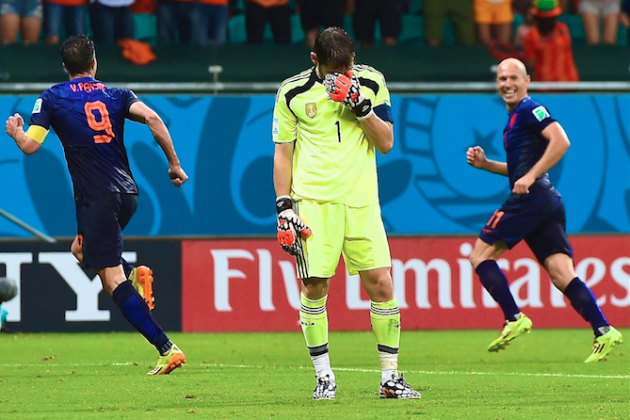
Iker Casillas after a goal by the Netherlands during Spain’s opening match where La Roja lost 5-1 to the Dutch side . Photo by David Ramos/Getty Images
Some believed that Spain would take the title of the 2014 World Cup champions. Others said it was highly unlikely. The only team to have won the World Cup back-to-back was Brazil in 1962 [21]. But not many expected Spain, the number-one ranked team according to FIFA, to be eliminated in the group stage. Yet that is exactly what happened this past summer in Brazil. Spain shocked the world when they lost to the Netherlands 5-1 in their opening game. The last time Spain conceded five goals in an international match was in 1963 [22].
“Spain didn’t just lose to the Netherlands. Spain were annihilated by the Netherlands, an annihilation of such magnitude that it’s almost impossible to comprehend.” – Andi Thomas, SB Nation.
Their second game sealed their World Cup fate as they lost 2-0 to Chile and were kicked out of the tournament [23]. Spain finished in 3rd place after a 3-0 victory over Australia. La Roja conceded 7 goals in the 2014 World Cup while they only surrendered 4 goals in the entirety of the 2010 World Cup.
In fact, Spain conceded a total of 6 goals during their Euro 2008 and World Cup 2010 victory runs – one less than their concessions during their 2014 group stage performance. Why did this happen? It seems that there is no definite reason the soccer community can agree on. Many cite the lackluster performance of Iker Casillas as goalkeeper, others point fingers at Vicente del Bosque, while others just blame bad luck and missed opportunities. Many saw Spain’s exit from the 2014 World Cup as the mark of the end of Spanish dominance in football. Spain needs to rebuild and recuperate in order to be a contender in future competitions. As of February 12th, 2015, Spain is ranked 10th by FIFA and making changes to the team as the squad plays friendlies and Euro 2016 qualifiers. Only time will tell if the reign of Spanish football is truly over.
Return to The 2010 South Africa World Cup (highlights, politics, lessons for Brazil)
Return to the World Cup 2014 Page
How to cite this article: “Spain: World Cup Champions,” Written by Christopher Nam (2013), Soccer Politics Pages, Soccer Politics Blog, Duke University, http://sites.duke.edu/wcwp (accessed on (date)).
Sources
- “Spain Deliver Promise at Last.” UEFA.com. UEFA. 6/29/08. Web accessed 11/29/13. <http://www.uefa.com/uefaeuro/season=2008/index.html>
- “Spain: Profile.” FIFA.com. FIFA. 6/1/10. Web accessed 11/29/13 <http://www.fifa.com/worldcup/archive/southafrica2010/teams/team=43969/profile.html>
- “Competition Format.” UEFA.com. UEFA. 4/3/10. Web accessed 11/30/13 <http://www.uefa.com/worldcup/season=2010/competitionformat/index.html>
- “Coaches: Vicente del Bosque Gonzales.” Real Madrid.com. Real Madrid F.C. 5/5/09. Web accessed 11/30/13 <http://www.realmadrid.com/cs/Satellite/es/1193040472600/1202732249100/contenido/Entrenador/Vicente_Del_Bosque_Gonzalez.htm>
- Martin, D. “Spain World Cup 2010 Profile.” Worldcupblog.com. 5/3/10. Web accessed 11/30/13 <http://www.worldcupblog.org/world-cup-2010/world-cup-2010-profile-spain.html>
- Futterman, M. “They Reign in Spain.” The Wall Street Journal. 7/12/13 Web accessed 11/30/13. <http://online.wsj.com/news/articles/SB10001424052748703580104575361241625333012>
- Alegi, Peter , and Chris Bolsmann. Specific excerpts used by Marc Fletcher and Meg Vandermerwe. Africa’s World Cup: Critical Reflections on Play, Patriotism, Spectatorship, and Space. Ann Arbor, MI: University of Michigan Press, 2013. Print. Pg 129
- Sheringham, Sam. “Spain 0-1 Switzerland.” Sport. World Cup 2010. BBC. 6/17/10 Web Accessed 11/30/13 <http://news.bbc.co.uk/sport2/hi/football/world_cup_2010/matches/match_16/default.stm>
- “Spain 1-0 Germany: Pressing, passing, and Puyol.” Zonal Marking. 6/7/10. Web accessed 12/1/13 < http://www.zonalmarking.net/2010/07/07/spain-1-0-germany-2010-world-cup-tactics/>
- 10. Fletcher, Paul. “Netherlands 0-1 Spain.” BBC Sport – World Cup 2010. BBC. 7/12/10. Web Accessed 12/1/13 http://news.bbc.co.uk/sport2/hi/football/world_cup_2010/matches/match_64/default.stm
- “Six Lessons We Can Learn from the 2010 World Cup.” Sportsranks.com. 7/14/13. Web accessed 11/28/13 <http://sportsranks.net/six-lessons-we-can-learn-from-the-2010-fifa-world-cup-in-time-for-brazil/5/>
- “Iniesta: I never lost faith.” FIFA.com – news. FIFA. 7/13/10. Web accessed 11/29/13. http://www.fifa.com/worldcup/archive/southafrica2010/news/newsid=1273769/index.html
- “Netherlands v Spain: the World Cup 2010 final in statistics.” DATABLOG. The Guardian. 7/15/10. Web Accessed 11/27/13. http://www.theguardian.com/news/datablog/2010/jul/12/spain-netherlands-world-cup-statistics
- Montague, James. “How World Cup victory stirred Spain’s forgotten patriotism.” CNN Worldpsort. CNN. 7/12/10. Web Accessed 12/2/13. http://www.cnn.com/2010/SPORT/football/07/12/spain.world.cup.unity
- Tremlett, Giles. “World Cup 2010: Spain’s success puts nationalists in the shade.” The Observer. The Guardian. 7/10/13. Web Accessed 12/2/13. http://www.theguardian.com/world/2010/jul/11/spain-world-cup-final-catalonia-basques
- Zamora, Fabien. “Spain looks to World Cup victory for economic boost.” AFP. 7/12/2010. Web Accessed 12/4/13. http://www.google.com/hostednews/afp/article/ALeqM5g27KNNRbRseyCrv0LOYZjAQ0Hgmw
- Bovard, Samuel. “Spaniards see dollar signs on the World Cup.” The Washington Times. 7/20/10. Web accessed 12/4/13 http://www.washingtontimes.com/news/2010/jul/20/spain-hopes-cash-soccer-world-cup-victory/?page=all
- Nicolau, Juan. “The effect of winning the 2010 FIFA World Cup on the tourism market value: The Spanish case.” Science Direct. Omega Vol 40 (5). Pg 503-510. October 12, 2010
- Kollmeyer, Barbara; Perez, Santiago. “World Cup Gains Stir Spain’s Fragile Economy.” The Wall Street Journal. 7/10/10 Web Accessed 12/4/13. http://online.wsj.com/news/articles/SB10001424052748704075604575357410684472950
- Rapp, Timothy. “Spain World Cup Draw 2014: Group, Fixtures, and Roster Predictions.” Bleacher Report. 12/6/13. Web Accessed 12/8/13. http://bleacherreport.com/articles/1872818-spain-world-cup-draw-2014-group-fixtures-and-roster-predictions
- Hayward, Ben. “Why Spain can win the World Cup.” Goal.com. 06/02/2014 Web Accessed 3/2/15. http://www.goal.com/en-us/news/67/world-cup-2014/2014/06/02/4855774/why-spain-can-win-the-world-cup
- Ornstein, David. “Spain-Netherlands” BBC Sport. Web Accessed 3/1/15 http://www.bbc.com/sport/0/football/25285043
- Greenberg, Chris. “Spain Eliminated From World Cup With Devastating Loss To Chile.” Huffington Post. 06/18/2014 Web Accessed 3/2/15. http://www.huffingtonpost.com/2014/06/18/spain-world-cup-eliminated_n_5509111.html

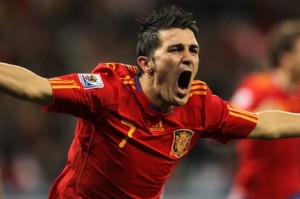
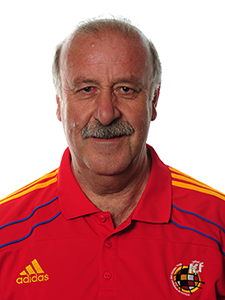
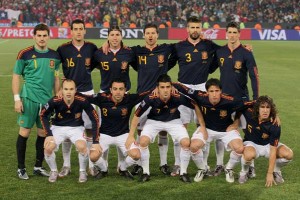
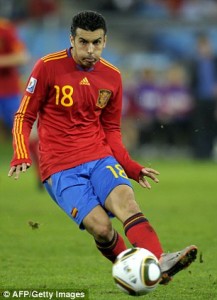
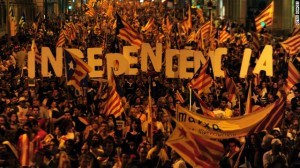

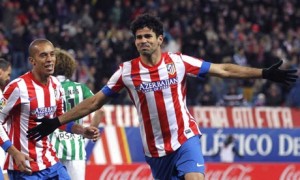
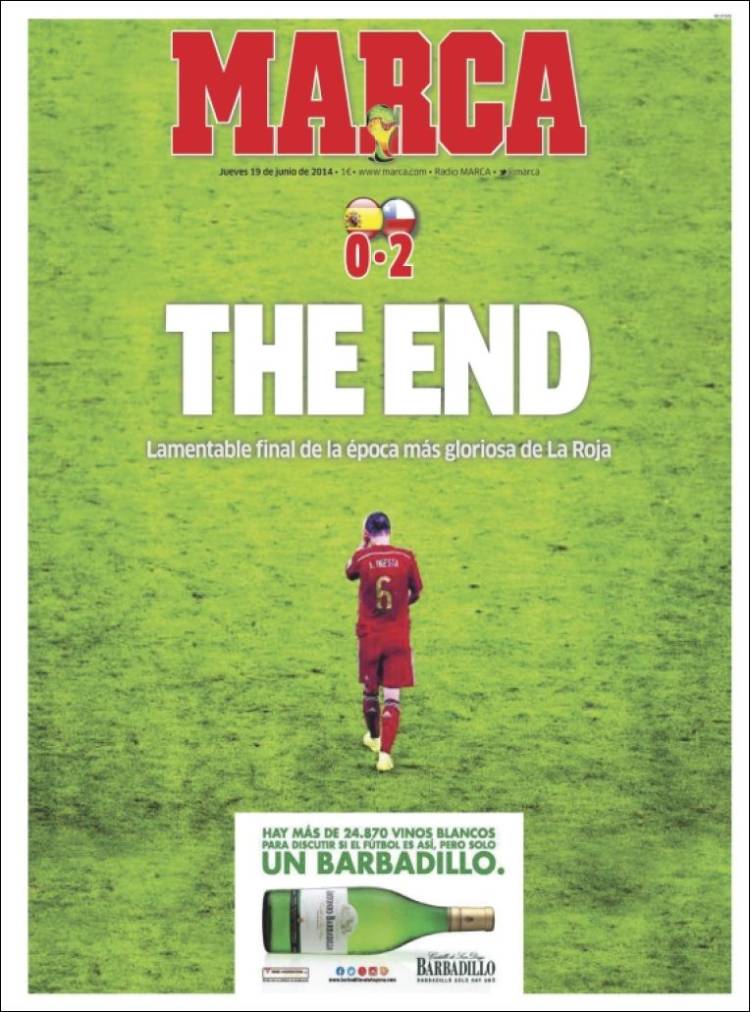
I will also be editing this page.
I will be editing this page!